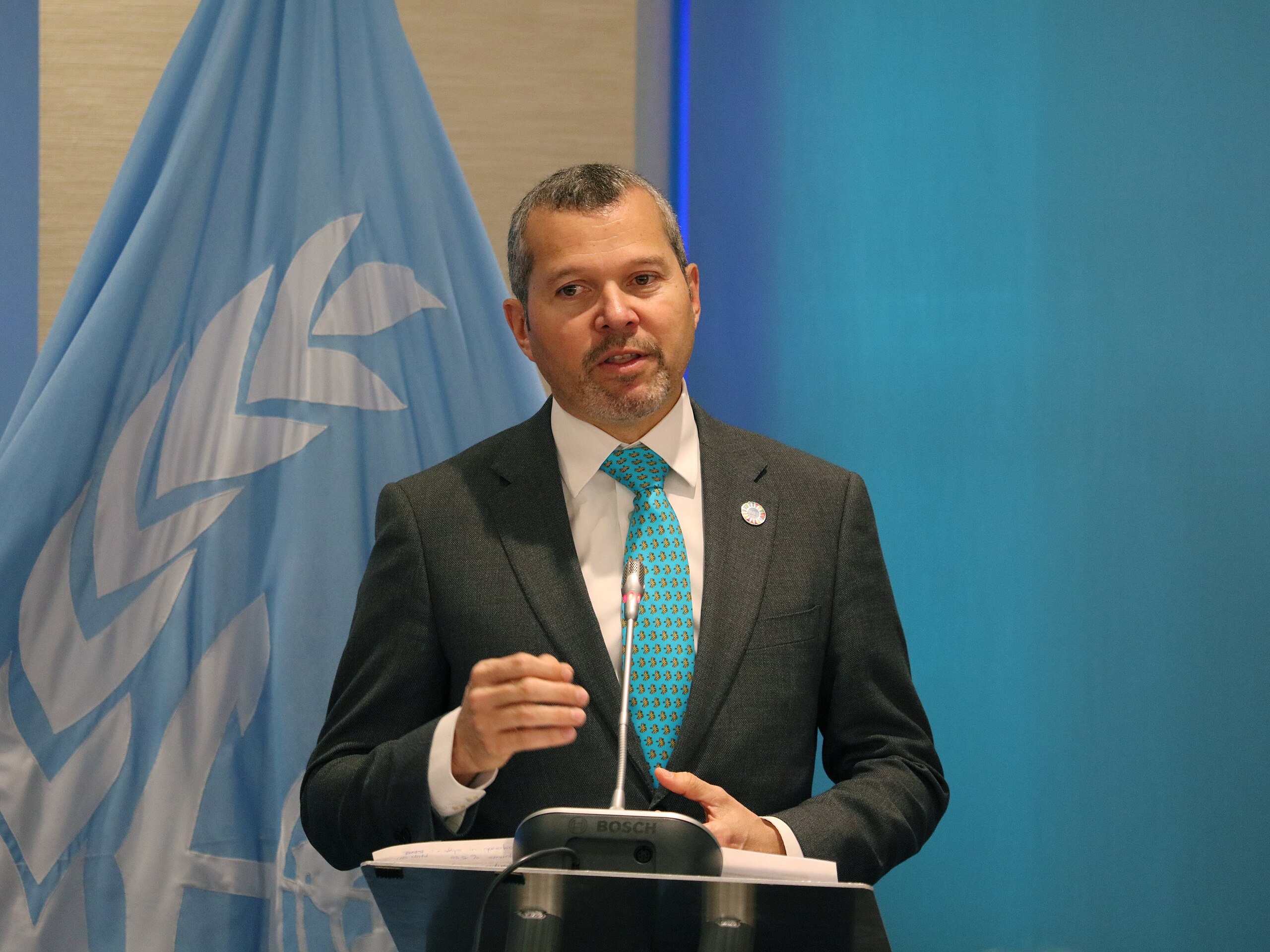The Secretary-General of the International Maritime Organization (IMO), Arsenio Dominguez, has acknowledged the disruption caused by the postponement of the vote on the adoption of the IMO’s Net-Zero Framework, describing last Friday’s session of the Marine Environment Protection Committee (MEPC) as “not a normal IMO meeting”.
Despite the setback, Dominguez emphasised that the organisation remains united in its mission and continues to make progress towards decarbonising the global shipping industry.
Speaking at the Women’s International Shipping & Trading Association (WISTA) Annual General Meeting and Conference in Barcelona, Dominguez addressed the fallout from the extraordinary MEPC session, which was expected to advance a landmark proposal for a global levy on greenhouse gas emissions from international shipping.
The levy is central to the IMO’s plans to implement its 2023 Greenhouse Gas Strategy, which commits the sector to reaching net-zero emissions “by or around 2050”.
However, disagreements among member states over how the levy should be structured, administered and enforced led to the vote being postponed.
“It is important for me and for everyone to recognise that last week was not a normal IMO meeting,” Dominguez said. “We shouldn’t be rated as an organisation based on the postponement that took place, but instead on the fact that, like everybody else, we are dealing with different changes, different geopolitical situations, and we need to adapt.”
He added that the IMO had already resumed work on decarbonisation, with technical discussions beginning earlier this week to address key concerns raised during the meeting, including the management of the proposed climate fund, certification processes and the practicalities of implementation.
The proposed greenhouse gas levy is seen as one of the most significant measures in the IMO’s efforts to accelerate the transition to cleaner fuels and technologies.
Supporters argue that it would create a global financial mechanism to incentivise emission reductions while generating funds for developing countries to access low- and zero-carbon technologies.
However, member states remain divided over the scale and design of the levy. Developing nations, led by China, India and several African countries, have expressed concerns that the mechanism could unfairly impact emerging economies and increase trade costs, while others — including many European and Pacific states — are pushing for a globally applied price on carbon emissions from ships.
Dominguez, who took office as IMO Secretary-General in January 2024, urged patience and diplomacy, stressing that consensus-building is at the heart of the organisation’s mandate.
“Whenever there were comments in the room, the most important thing is that the member states, the delegates, are talking to each other. Those that had different views were in the same room, and we’re not going to find agreements right away, because we need to understand those comments and address them with further discussions and data,” he said.
“That is how multilateralism continues to work, and it is at the centre of everything that we do at IMO. So again, a silver lining — the member states are talking to each other.”
The delay at MEPC has prompted criticism from some climate advocates who argue that the shipping sector — responsible for nearly 3% of global carbon dioxide emissions — is moving too slowly to align with the Paris Agreement’s 1.5°C target.
Yet Dominguez insisted that the IMO’s record over its 70-year history shows resilience and adaptability.
“It’s easy for critics to judge the IMO’s success based on the events of last week, but we have decades of progress behind us — improving safety, security and shipping’s environmental performance. We are a strong organisation with a large and relevant programme of work,” he stated.
Copyright Ships & Ports Ltd. Permission to use quotations from this article is granted subject to appropriate credit given to www.shipsandports.com.ng as the source.

